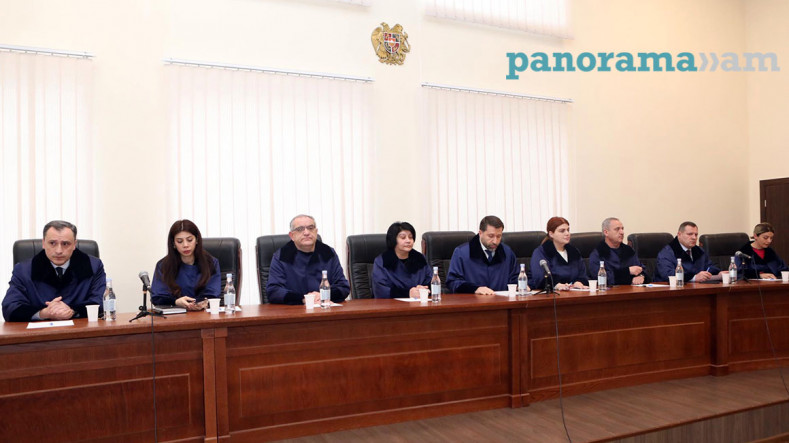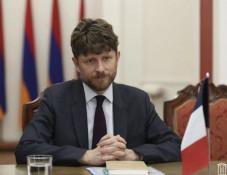
Some Armenian judges faced internal pressure from superiors, including SJC – State Department
There were unconfirmed reports of attempts by the Armenian government to influence judges, the U.S. Department of State said in the 2022 Country Reports on Human Rights Practices released on Monday.
The report says although the law provides for an independent judiciary, the judiciary was not viewed as independent or impartial due to its history of corruption and political influence, resistance to reform, and recent high-profile scandals.
The high case load, lack of public trust, and allegations of government pressure discouraged professionals from applying to judgeships, it claims.
On June 20, the Chairman of the Supreme Judicial Council (SJC), Ruben Vardazaryan, who had been suspended on charges of obstruction of justice, leaked a partial recording of his discussion with the progovernment acting chairman of the SJC Gagik Jhangiryan. In the secretly recorded conversation, which Vardazaryan said occurred in February 2021, Jhangiryan urged Vardazaryan to resign in exchange for not facing criminal charges. Vardazaryan was suspended and charged with obstruction of justice that April. Jhangiryan subsequently resigned, purportedly on health grounds. The case further undermined public trust in the judiciary.
Parliament appointed Karen Andreasyan to the SJC on October 6; the SJC appointed him as head on October 7. Until his appointment, he had been the justice minister and a ruling party member; citing these factors, civil society expressed concern regarding the impact of this appointment on the institution’s independence.
The SJC voted on November 21 to support Mnatsakan Martirosyan’s candidacy to serve as a judge on the newly established Specialized Anti-Corruption Court, despite the reportedly negative results of his integrity check conducted by the Corruption Prevention Commission. Many independent experts publicly criticized the SJC decision, citing scores of cases in which the judge appeared to have made judicial decisions based on a political agenda. A joint NGO statement termed the SJC’s vote “highly unacceptable and condemnable.” On December 30, the SJC removed Martirosyan from the list of candidates for the Anti-Corruption Court, purportedly based on Martirosyan’s withdrawal of his application. The SJC decision occurred a month after respected SJC member Grigor Bekmezyan relinquished his membership, citing a lack of institutional independence.
"Human rights lawyers noted that some judges faced internal pressure from superiors, including the SJC, on some judicial decisions. Such pressure reportedly included suggesting their reputations or careers would be impacted and threatening selective punishment of minor misdemeanors. Some judges used the severely overloaded dockets to pressure rival interest groups by taking medical leave and leaving their colleagues an insurmountable caseload. Human rights lawyers said court decisions on cases involving similar circumstances had become unpredictable and in some high-profile corruption cases decisions appeared to be politically motivated. They asserted that judicial reforms primarily offered ad hoc and temporary fixes rather than systemic reform," reads the report.
Related news
Newsfeed
Videos






























